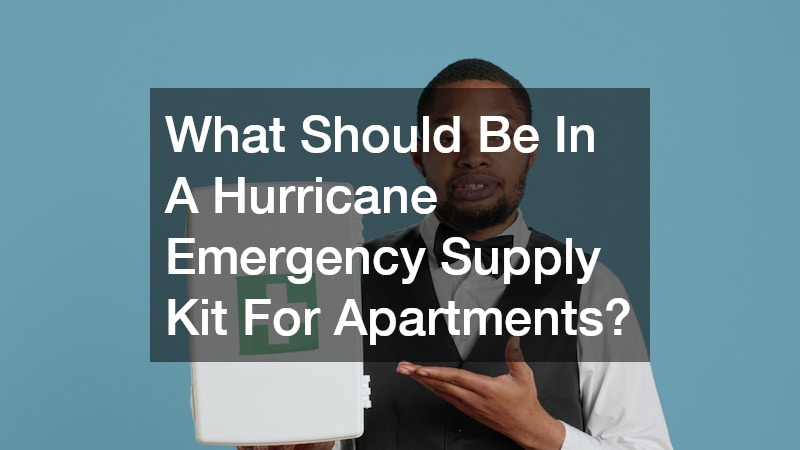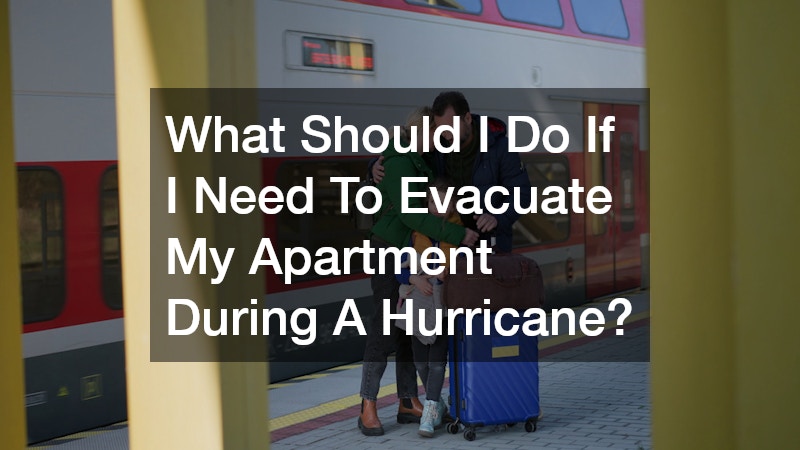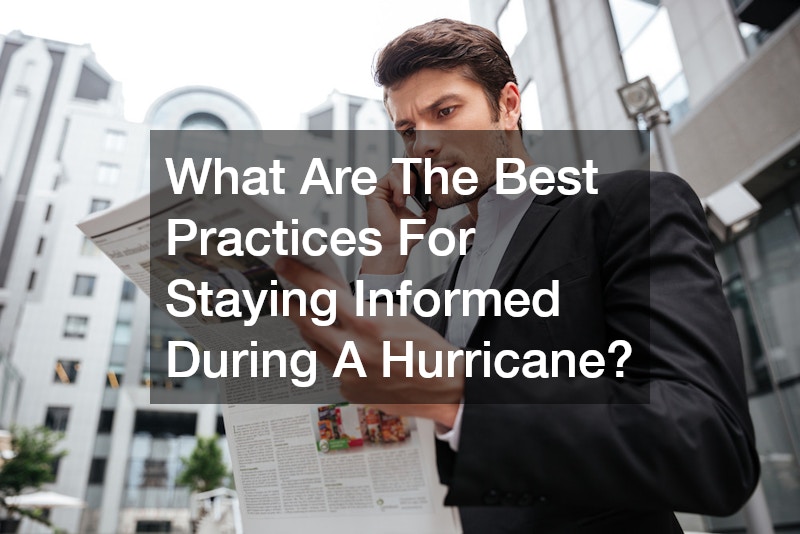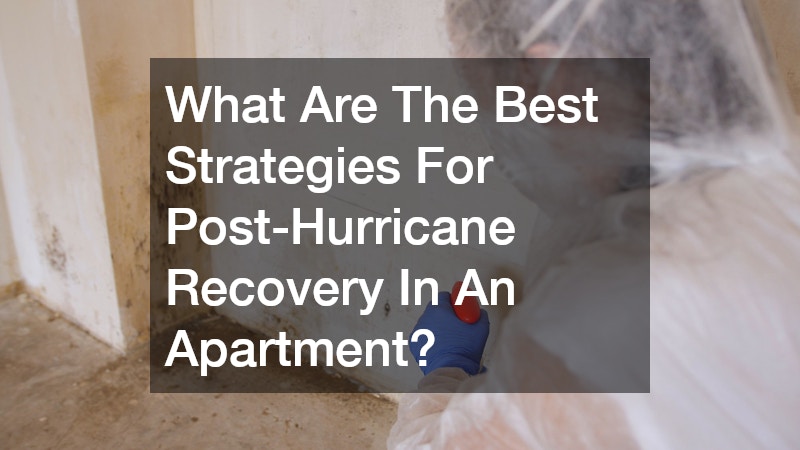Understanding the importance of preparation can make all the difference during a hurricane. Apartment dwellers face unique challenges compared with homeowners, making it crucial to implement specific strategies to protect both people and property. From securing windows to preparing emergency supplies, this guide offers comprehensive tips to ensure safety and minimize damage during hurricane season. With careful planning, residents can face storms with confidence and resilience.
How Should I Prepare My Apartment For A Hurricane?
Proper preparation begins with assessing risks and understanding the potential impact of a hurricane on your apartment. Taking proactive steps can significantly reduce the dangers associated with high winds, flooding, and debris.
Assessing Hurricane Risk And Evacuation Zones
Apartment residents should first identify whether their building is located in a high-risk hurricane zone. Local government websites and emergency management offices often provide detailed flood maps and evacuation routes.
Securing Windows And Doors
Windows and doors are the most vulnerable points in an apartment during a hurricane. Expert roofers recommend storm shutters or impact window installation to reduce breakage. Hurricane glass windows offer extra protection, and door repair ensures proper sealing against strong winds. A professional gutter installer can manage water flow, limiting intrusion during heavy rain.
Creating An Emergency Supply Kit
A well-stocked emergency kit is essential for apartment hurricane preparedness. It should include food, water, medical supplies, and other necessities to last at least 72 hours. Residents may also consider arranging temporary parking at a nearby car storage facility to keep their vehicles safe and accessible during the hurricane.
Developing A Communication Plan
Communication is critical during hurricanes. Apartment dwellers should establish a clear plan to stay in contact with family members, friends, and neighbors. This may include exchanging phone numbers, designating a central meeting point, and using group messaging apps to share updates.
What Should Be In A Hurricane Emergency Supply Kit For Apartments?

A comprehensive emergency kit is crucial for surviving a hurricane safely. Apartment dwellers face unique constraints in storage space, so efficient planning is key.
Essential Food And Water Supplies
Pack enough non-perishable food and bottled water to last several days. Canned goods, energy bars, and ready-to-eat meals are ideal for apartment storage. Water should be stored in durable containers, with at least one gallon per person per day. Avoid items that require extensive cooking to minimize the reliance on electricity or gas.
Medical Supplies And Medications
First-aid supplies should include bandages, antiseptics, and any prescription medications necessary for residents. It is wise to maintain extra doses of critical medications in case access to pharmacies is limited. Apartment residents should also consider including items like over-the-counter pain relievers, allergy medications, and eye drops.
Important Documents And Cash
Vital records such as identification, insurance papers, and apartment leases should be stored in waterproof containers. Cash is essential as ATMs and electronic payment systems may not function during power outages. A small safe or lockbox can protect important items while keeping them accessible in an emergency.
Tools And Safety Gear
Tools like flashlights, batteries, a multi-purpose knife, and a whistle can be lifesaving during a hurricane. Safety gear, including helmets, gloves, and protective eyewear, is also recommended. These items can help residents navigate debris-filled hallways and protect themselves while performing emergency repairs or assisting neighbors.
Entertainment And Comfort Items
Long periods indoors may be inevitable during a hurricane, so having items for comfort and mental well-being is important. Books, board games, or downloaded media can help reduce stress. Blankets, pillows, and extra clothing should also be included to ensure warmth and comfort if heating or air conditioning is compromised.
How Can I Protect My Pets During A Hurricane?
Pets are vulnerable during storms, and their safety should be an integral part of any apartment hurricane preparedness plan.
Creating A Pet Emergency Kit
Pet owners should prepare a separate kit containing food, water, medications, leashes, and carriers. Familiar toys or blankets can help reduce stress for animals. Ensuring that all pets have proper identification tags and microchips improves the chances of reunification if they become lost.
Finding Pet-Friendly Shelters And Hotels
Research shelters and hotels that accept pets well in advance. Apartment residents should know which facilities are available within reasonable distances. Reserving space if possible guarantees a safe refuge for pets during evacuations.
Keeping Pets Calm During The Storm
Animals often experience heightened anxiety during hurricanes. Maintaining routines, providing comfort, and creating a secure space can help minimize stress. Using calming aids such as pheromone sprays or anxiety wraps may also be beneficial.
Updating Pet Identification And Records
Ensure that pets have up-to-date identification and vaccination records. Apartment dwellers may need to transport these documents to shelters or hotels. Having them organized and easily accessible reduces delays during evacuation.
Planning For Evacuations With Pets
Evacuation plans must account for pets. Consider transportation options, shelter locations, and emergency supplies. Practicing evacuation drills with pets can help familiarize them with carriers and vehicles, reducing stress during actual emergencies.
What Should I Do If I Need To Evacuate My Apartment During A Hurricane?

Evacuating an apartment requires careful preparation to ensure both safety and efficiency.
Knowing When To Evacuate
Residents should follow guidance from local authorities regarding mandatory evacuation orders. Delaying evacuation can increase exposure to dangerous conditions, including flooding and falling debris. Understanding local alerts and weather forecasts ensures timely action.
Finding Evacuation Routes And Destinations
Familiarity with evacuation routes and safe destinations is essential. Mapping multiple options reduces the risk of being trapped if primary roads are blocked. Apartment dwellers should also consider the accessibility of these routes for elderly or disabled residents.
Preparing Transportation And Fuel
Securing transportation and ensuring sufficient fuel levels is critical. Apartment communities often have limited parking, so planning in advance helps avoid congestion. Car storage facilities may also be contacted to temporarily relocate vehicles to safer areas during hurricane season.
Handling Financial Considerations
Financial preparedness includes having cash on hand and ensuring that bank accounts and insurance policies are up to date. Residents should verify that their home appraisal is current to facilitate claims if damage occurs. Planning for potential lodging costs ensures a smoother evacuation.
Ensuring Personal Safety During Evacuation
During evacuation, personal safety should be prioritized. Apartment dwellers should travel in groups when possible and avoid flooded roads. Keeping emergency contacts accessible and following designated routes reduces the risk of accidents or injury.
How Can I Ensure My Apartment Contents Are Safe During A Hurricane?
Protecting belongings can significantly reduce post-storm losses.
Securing Valuable And Important Items
Valuables such as jewelry, electronics, and documents should be stored in waterproof containers or safes. Items that cannot be moved should be elevated off the floor to prevent water damage. Door repair and impact window installation may further safeguard interior spaces from debris intrusion.
Protecting Electronics And Appliances
Unplugging electronics reduces the risk of damage from power surges. Sensitive appliances should be relocated away from windows and areas prone to flooding. Surge protectors provide additional security against electrical disturbances.
Utilizing Sandbags And Other Barriers
Sandbags and temporary barriers can prevent water from entering apartment units. Local tree removal services may help clear debris that could block water drainage, reducing flood risk. Expert roofers can also inspect and reinforce roofing structures to limit interior exposure.
Understanding Insurance Coverage And Claims
Apartment residents should understand their renter’s insurance coverage and file claims promptly if damage occurs. Knowing which items are covered and how to document losses ensures quicker reimbursement and repair services.
Documenting Belongings For Potential Claims
Photographing and inventorying possessions before a hurricane provides essential evidence for insurance claims. Keeping copies of receipts and warranties further strengthens documentation. Tree services and other professional contractors can provide repair estimates for more complex damage.
What Are The Best Practices For Staying Informed During A Hurricane?

Timely information is critical to apartment hurricane preparedness.
Utilizing Weather Apps And Alerts
Smartphone weather apps provide real-time updates on hurricane paths, wind speeds, and emergency alerts. Residents should enable push notifications to receive instant warnings.
Tuning Into Local News And Radio Stations
Traditional media remains a reliable source during emergencies. Apartment dwellers should monitor local television and radio stations for official updates and evacuation instructions.
Joining Community Groups And Networks
Neighborhood or apartment community groups often share localized information. Engaging with these networks ensures access to valuable tips and resources.
Setting Up A Designated Communication Person
Assigning a single point of contact for family and friends can streamline communication. This person can relay information to multiple parties, reducing confusion during stressful situations.
Understanding The Role Of Social Media
While social media can provide rapid updates, residents should verify information through official sources. Misinformation may spread quickly during disasters, so cross-checking alerts is essential.
How Can I Minimize The Impact Of Power Outages In My Apartment?
Power outages are common during hurricanes, but strategic preparation can reduce inconvenience.
Storing Non-Perishable Food
Stocking non-perishable foods that do not require cooking ensures sustenance during outages. Apartment residents should prioritize items that are easy to store and consume.
Preparing Alternative Light Sources
Flashlights, battery-operated lanterns, and candles provide essential lighting when electricity fails. Portable power banks keep phones and essential devices operational. Car storage facilities may also serve as backup locations for charging devices if safe access is possible.
Charging Electronic Devices Pre-Storm
Fully charging phones, laptops, and other devices before a hurricane ensures continued communication. Keeping power banks charged further extends device usability.
Using Portable Power Banks
Portable power banks allow apartment dwellers to recharge devices without relying on the grid. Multiple banks may be necessary for larger families or extended outages.
Caring For Refrigerator And Freezer Contents
Minimizing refrigerator and freezer openings preserves cold temperatures longer. Ice packs and insulated containers help protect perishables if power is lost for extended periods.
What Are The Best Strategies For Post-Hurricane Recovery In An Apartment?

Recovery begins once the hurricane has passed, focusing on safety and restoration.
Assessing Structural Damage Safely
After a hurricane, expert roofers and building inspectors should evaluate the apartment’s structural integrity. Avoiding unstable areas reduces the risk of injury.
Dealing With Water Damage And Mold
Promptly addressing water intrusion prevents mold growth. Apartment residents may need assistance from tree services to remove debris and ensure proper drainage. Professional cleaning and restoration services can expedite recovery.
Navigating Insurance Claims And Repairs
Filing claims and coordinating repairs efficiently is critical. Gutter installers and other contractors may assist in repairing structural elements affected by the storm. Keeping a record of all communications and receipts aids in the claims process.
Handling Mental Health And Stress
Hurricane recovery can be emotionally taxing. Residents should prioritize mental health by maintaining routines, seeking support, and practicing stress-relief activities. Community networks can offer assistance during this period.
Reestablishing Daily Routines
Returning to normalcy involves restoring utilities, cleaning living spaces, and resuming work or school schedules. Apartment communities that coordinate post-storm efforts often recover more quickly and safely.
How Can Apartment Communities Work Together During A Hurricane?
Collaborative efforts strengthen resilience and ensure the safety of all residents.
Building A Community Emergency Response Team
Apartment complexes can form emergency response teams to coordinate preparedness and assist vulnerable residents. Roles may include communication leads, supply coordinators, and first responders.
Sharing Resources And Supplies
Pooling resources such as food, water, and safety equipment helps ensure that everyone has access to essential items. Communities with shared storage areas or car storage facilities can optimize distribution during storms.
Coordinating Communication Efforts
Clear and coordinated communication among residents ensures that alerts, updates, and instructions reach everyone. Social media groups, phone trees, and bulletin boards are effective tools.
Offering Help To Vulnerable Residents
Neighbors can assist elderly, disabled, or otherwise vulnerable residents during evacuation and recovery. Community-driven initiatives improve safety and morale.
Participating In Community Drills And Training
Practicing emergency scenarios prepares residents for real-life situations. Drills also allow apartment communities to identify gaps in plans and make improvements before hurricane season.
What Are Common Misconceptions About Hurricane Preparedness In Apartments?
Dispelling myths ensures that residents are properly prepared.
Understanding The Myths About Apartment Safety
Some tenants believe that apartments are inherently safer than houses. While reinforced structures offer advantages, high-rise buildings may be more exposed to wind and debris, requiring careful planning.
Addressing False Security Beliefs
Assuming that minor repairs suffice can be dangerous. Proper door repair, impact window installation, and roof inspections are essential for comprehensive protection.
Clarifying Insurance Misunderstandings
Renter’s insurance does not always cover flood damage. Residents should confirm policy details and consider additional coverage if necessary, including home appraisal updates to reflect current value.
Debunking Evacuation Myths
Believing that evacuation is unnecessary for upper-floor apartments can be misleading. High winds and flooding can affect all levels, making timely evacuation critical in certain scenarios.
Clearing Up Power Outage Information
Some tenants underestimate the potential duration and impact of power outages. Preparing non-perishable food, portable power banks, and alternative lighting ensures continued safety and comfort.
Proper preparation can greatly reduce the risks associated with hurricanes, especially for those living in apartments. By securing windows and doors, creating emergency supply kits, protecting pets, and developing evacuation plans, residents can face storms with confidence. Understanding insurance coverage, documenting belongings, and coordinating with the community further enhances resilience. With proactive measures, apartment dwellers can ensure the safety of themselves, their loved ones, and their property during hurricane season, mitigating the impact of natural disasters on their daily lives.
